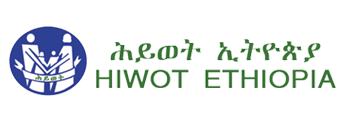What we do
Hiwot Ethiopia is made its greatest efforts to changes the lives of children and youth in Ethiopia. Hiwot Ethiopia delivers a range of multi-year projects with a number of local and international partners.
Hiwot Ethiopia is focuses on:
- Health- Providing health information, advocacy campaign and quality services on SRHR/FP, HIV/AIDS, MNCH/FP, WASH
- Children & Youth Right – Providing information, advocacy campaigns, protection, prevention and supporting children
- Education- providing information, advocacy campaigns on access and quality education. In addition, it has providing support to students particularly to girls and building the capacity of schools and institutions (pre and primary, secondary and university)
- Economic Empowerment- providing skill building training, business management training and seed capital to start own business (IGAs) and establishing self help groups.
- Gender Equality- advocacy campaign, awareness creation to reduce sexual abuse, exploitation, harassment ,gender based violence and ensure gender equality at family, community and institution level
Cross Cutting Issues
- Disability- work with peoples with disability associations and other institutions to build the capacity of disable persons. Organize advocacy campaigns and support to ensure their rights
- Engaging boys and men- advocacy campaigns and awareness creation events to reduce men gender norms, sexual abuse, exploitation, harassment and gender based violence and ensure gender equality at all level.
Major Achievement
- Hiwot Ethiopia initiated the use of the traditional Ethiopian coffee ceremony as a forum for discussing issues as ASRH, HIV/AIDS and gender.
- The organization has also done substantial work using the ‘youth to youth’ approach to establish other ASRH an Anti-AIDS youth clubs and support their development and outreach activities to young people. Hiwot Ethiopia is particularly proud that a number of these youth clubs have since gone on to legally establish themselves as organizations in their own right.
- In achieving the intended objectives, Hiwot Ethiopia has identified and tried to ensure retention and reduce school dropouts and irregularities of girl students in target schools and create positive attitude and raise awareness of parents and community towards girl’s education. As a result, through strong cooperation between schools, government and community members, the project (in first phase) tackled a range of barriers which kept girls from going to school or caused them to dropout. And significantly more girls now go to and stay in school and support for girls’ education has increased within the wider community
- Hiwot Ethiopia has mobilized key stakeholders and the community in the target area and successfully created four “Girls’ Safe Houses” near high schools at four woredas of North Showa Zone in Amhara region. Thereby, at least 96 girls have been able to live in the houses while they attend high school, eliminating the daily trek to school. Hiwot Ethiopia also provided support and companionship for the girls, including books and educational materials. The girls received monthly stipends as well as reproductive health information and supplies like sanitary pads so they do not miss classes when they are menstruating. As a result of such interventions, a dramatic reduction of school dropout, increased community and government support to end child marriage.
- Communication for Health, a project being implemented by Hiwot Ethiopia in order to increased knowledge and beneficial practices concerning health through Social and Behavioral change communication (SBCC) approach. As a result, the knowledge and healthy practice of community members across the 6 health areas (RMNCH, Malaria, Tuberculosis, WASH, PMTCT, and Nutrition) increased at five Woredas in East Gojjam Zone in two years.
- Hiwot Ethiopia has become well known for its pioneering work of engaging boys and men to tackle HIV/AIDS, GBV and child sexual abuse. In particular, Hiwot Ethiopia’s work on engaging men and boys has been recognized as an innovative and important contribution to achieving gender equality and reducing HIV/AIDS transmission and GBV, child sexual abuse and exploitation and Sexual Reproductive Health hazards.
- Hiwot Ethiopia initiated Radio show to enhance public awareness and engagement on;
- “men and boys do care to protect children and young people from sexual abuse, exploitation including GBV” through its well known Yenigat Weg Radio show
- citizens’ engagement in peace building and improving attitudes, perceptions and skills in regards to coexistence, trust building and an appreciation of diversity through “Selselam “ Radio show
- Another initiative, called Engaging Men for Positive Parent and Children’s Wellbeing is working with the Addis Ababa University Gender Office and other CSOs to promote men engagement in gender equality, preventing, HIV/AIDS and GBV.
- High risk urban vulnerable girls and commercial sex workers’ knowledge on HIV prevention increased and created safe environment for supporting their economic status.
- The safeguarding children and adult at risk project which has been implemented by Hiwot has made greater impact on the capacity of over 29 CSSP2 grantees (CSOs). The CSOs staff awareness enhanced to develop and exercise safeguarding children and adult at risk policy and practice. The project enabled the CSOs to be much concerned on the protection of the rights of their beneficiaries and staffs and institutionalized safeguarding. This is manifested through in the various activities;
- The safeguarding policy of the 29 partner CSOs are revised in accordance with risks identified and the self-audit tools. The policy addressed the minimum standards of safeguarding
- In order to prevent abuse, Partner CSOs applied the safe recruitment process such as criminal background check and reference check when recruiting staffs
- The partner CSOs consider the safeguarding issue during project design and implementation. Some of the safeguarding activities are included in the project activities.
- The partner CSOs made their staffs to sign and respect code of conduct that contains what staffs are required to do and abandon to do within and outside the organization.
